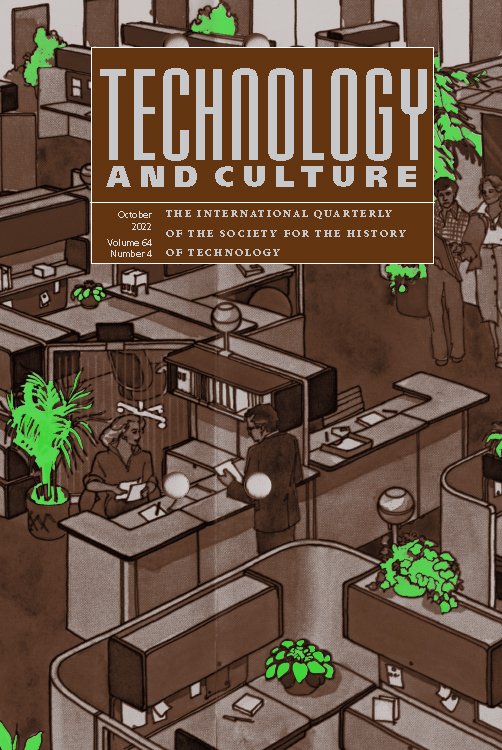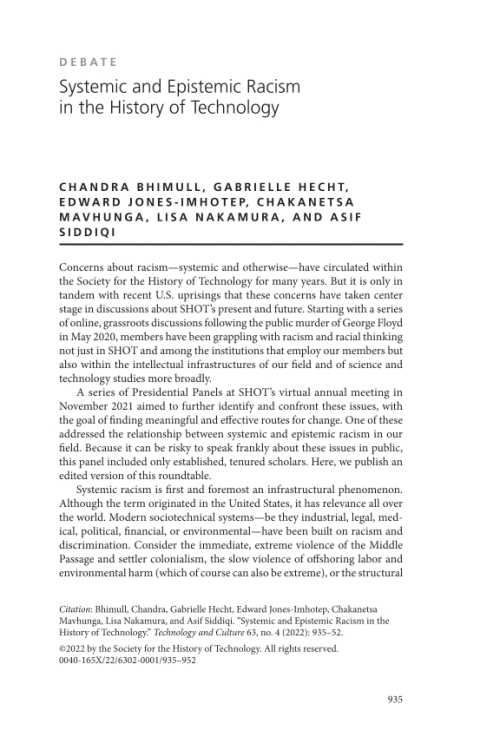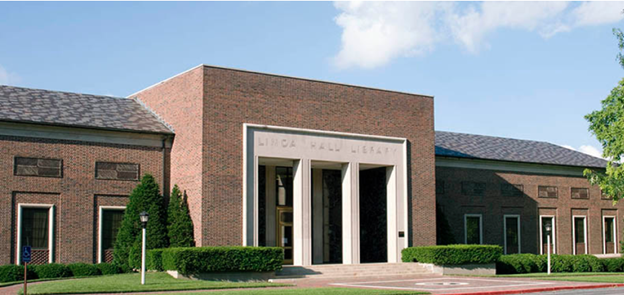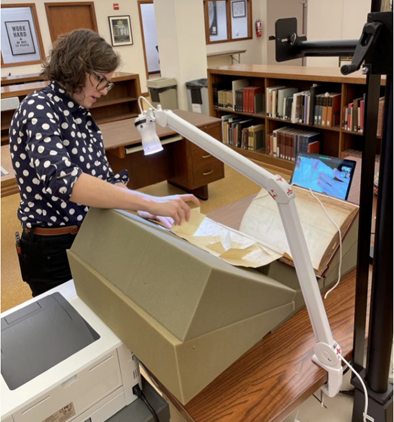The October 2022 of Technology and Culture is OUT! It discusses: offices, epistemic racism, the technosphere, spinning machinery, escalators, plant care tech, hearing aids, radio, torpedo boats, virtual research, and more! Let's check out what is inside. 

Check out this @ProjectMUSE link to see the issue online: muse.jhu.edu/issue/48974
Articles will receive individual focus in the coming weeks/months, and then we'll tag related orgs and communities. For now, let's review the contents of the issue!
Articles will receive individual focus in the coming weeks/months, and then we'll tag related orgs and communities. For now, let's review the contents of the issue!
@kaufmannn_buhler discusses the cover image in “Working in the Electronic Garden” taken from a marketing image for @HermanMiller's Action Office which imagined the open plan office as a dynamic, supportive, and personalized space.
Link: muse.jhu.edu/article/868047
Link: muse.jhu.edu/article/868047

Racism is infrastructural. How can historians of technology reckon with this? How can we overcome the epistemic racism that has prevented reckoning? Join Chandra Bhimull, Chakanetsa Mavhunga @ejonesimhotep @historyasif @lnakamur @GabrielleHecht
Link: muse.jhu.edu/article/868048
Link: muse.jhu.edu/article/868048

What is the technosphere? How should technology scholars approach it? Chris Otter offers a new interpretation, emphasizing scale, deep time, and power in "Socializing the Technosphere"
Link: muse.jhu.edu/article/868049

Link: muse.jhu.edu/article/868049


Was China a passive recipient of American technology at the turn of the 20th century? Yuan Yi’s “Crafted for Mass Production” presents Chinese users of American machines as active participants in the co-construction of global spinning technologies.
Link: muse.jhu.edu/article/868050
Link: muse.jhu.edu/article/868050

How were ordinary Londoners made to comply with the technological demands of the Underground’s escalators? asks @Hornsey_HQ in his new article "Escalator-Legged" in Interwar London: Mechanization, Habit, and the Mobile Body.
Link: muse.jhu.edu/article/868051
Link: muse.jhu.edu/article/868051

How were plants and their care built into office interiors? In “Designing for Maintenance” @kaufmann_buhler examines office design through the lens of greenery to understand the maintenance systems and practices of interior landscape design.
Link: muse.jhu.edu/article/868052
Link: muse.jhu.edu/article/868052

What does the spread of hearing aids in 1950s Japan say about the history of sound technologies and cultures? In "Beautiful Sounds, Beautiful Life" @frankmondelli writes about hearing aids and music, in Deaf classrooms, events, corporate histories.
Link: muse.jhu.edu/article/868053
Link: muse.jhu.edu/article/868053

From 1922-1925, this dapper, disreputable man helped bring radio to Shanghai. Is this case of a developing country playing catch-up? @JohnAlekna argues hardly, rather it was a “global technological moment” in "Neither Nation nor Empire."
Link: muse.jhu.edu/article/868054
Link: muse.jhu.edu/article/868054

Can new technologies rescue old values? In "Manning the Torpedo Boats" @tjamison_tommy explores how a new weapon—the torpedo boat—became a time capsule for pre-industrial values about masculinity and manhood in the United States and Britain.
Link: muse.jhu.edu/article/868055
Link: muse.jhu.edu/article/868055

#COVID19 forced librarians & archivists to rethink how researchers accessed their collections. In "Going Digital" learn how @LindaHall_org's virtual #fellowships made its holdings available to off-site scholars in our latest #PublicHistory section.
Link: muse.jhu.edu/article/868056
Link: muse.jhu.edu/article/868056

Even before #COVID19, @LindaHall_org had a long history of supporting off-site #research. In, "Research in the Time of COVID" @bhgross144 shows how its digitization infrastructure, collection policies & staff made virtual #fellowships possible.
Link: muse.jhu.edu/article/868057
Link: muse.jhu.edu/article/868057

How do you conduct research when the library is half a world away? In "Fellows Online: The User Experience" Allison Marsh interviews 5 scholars (@hannahcconway @tashaddad @ClaireLMayo @ellanfei) about their virtual #fellowships @LindaHall_org.
Link: muse.jhu.edu/article/868058
Link: muse.jhu.edu/article/868058

Last, Huang and Guan review the History of Science and Technology in China series. Asking, how does it describe the development of science and technology in Chinese history, and what value and influence does it have?
Link: muse.jhu.edu/article/868059
Link: muse.jhu.edu/article/868059

That's it for now #histSTM folks! We'll be back soon to highlight the extensive review section in this issue, some individual articles, and tag some relevant orgs and communities. Big thanks to the authors, editorial and office staff :)
• • •
Missing some Tweet in this thread? You can try to
force a refresh






